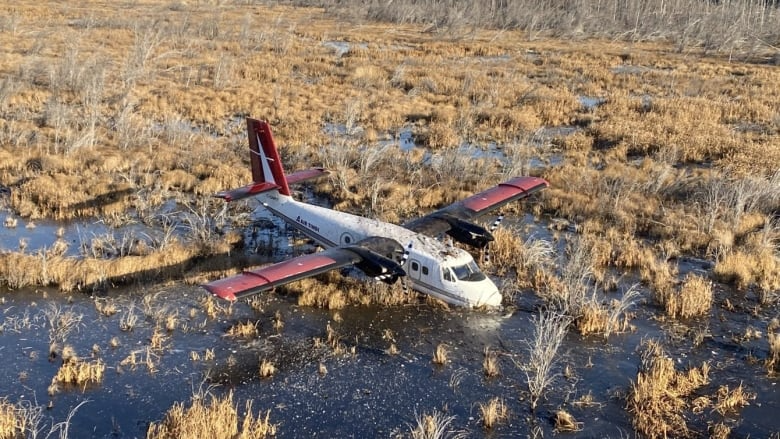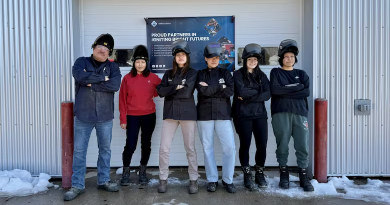TSB report: Forced landing in N.W.T. due to failure to follow safety procedures

A flight that had to make a forced landing into muskeg near Fort Providence, N.W.T. last year ran out of gas because the pilots did not follow proper pre-flight safety checklist procedures, a Transportation Safety Board of Canada investigation has concluded.
The Air Tindi flight left Yellowknife on Nov. 1, 2021 with two flight crew and three passengers bound for Fort Simpson. But 40 minutes into the flight the crew noticed the Twin Otter didn’t have enough fuel to make it to Fort Simpson or to return to Yellowknife, according to the TSB report.
The flight crew decided to try to land at the Fort Providence Airport. They shut down the plane’s left engine to save fuel. The right engine then flamed out and the plane was forced to make an emergency landing onto muskeg 12.5 kilometers from the airport.
Though the plane suffered substantial damage, the passengers and crew suffered only minor injuries related to hypothermia, according to the report. They were rescued roughly four hours after the plane landed.
The flight to Fort Simpson was to be the fourth return flight of the day for the plane. The same flight crew had conducted the earlier flights and was scheduled to overnight in Fort Simpson before returning to Yellowknife the next day.
Failure to refuel
TSB investigators concluded that the flight had not been refuelled for that final flight of the day. Ensuring planes have been refuelled is part of a safety checklist that the flight crew is supposed to conduct before each flight.
According to the report, the captain went over the pre-flight safety checklist from memory, but stopped during it to talk to a passenger.
“Consequently the fuel quantity check was missed and the preparation for flight continued without the captain being aware that the aircraft did not have sufficient fuel for the flight on board,” stated the report.
The captain conducted other safety checklists silently and from memory prior to take-off. That had become a a practice of experienced Air Tindi captains for most of their flights, according to the report, a practice the company’s management was unaware of.
Following the forced landing, Air Tindi took a number of steps to prevent such an accident from happening again.
Now captains have to verify by signature they’ve confirmed the plane has been refueled prior to each flight. They must also call in to the flight centre prior to each flight confirming the amount of fuel on board. A memo was also sent out to all flight crews emphasizing the importance of following all safety procedures and checklists. Changes were also made to other standard operating procedures to improve safety.
Related stories from around the North:
Canada: Remote Canadian community’s request for direct flight to Arctic Nunavut territory can no longer be ignored says, CBC News
Finland: Cold weather perfect to pioneer electric aviation says Finnair, The Independent Barents Observer
Russia: Train traffic resumes in Russian Arctic as Murmansk reconnects with grid, The Independent Barents Observer
Sweden: Finland-Sweden train travel moves a step closer, Yle News
United States: Airline shutdown creates new challenges for rural Alaska, The Associated Press



